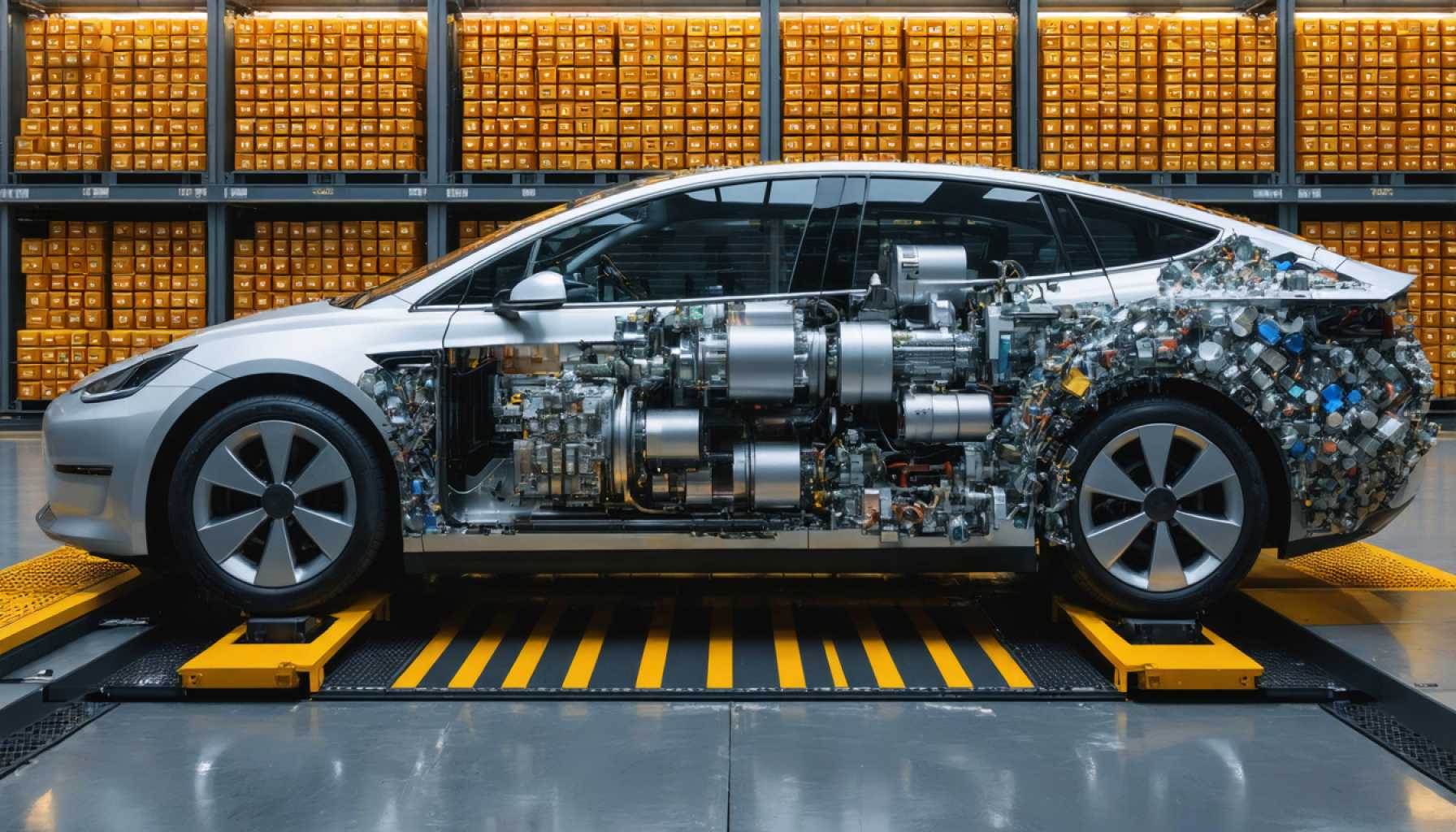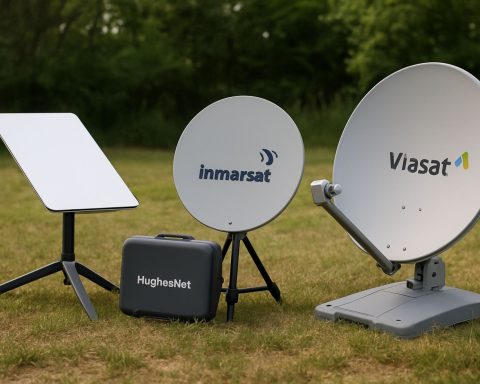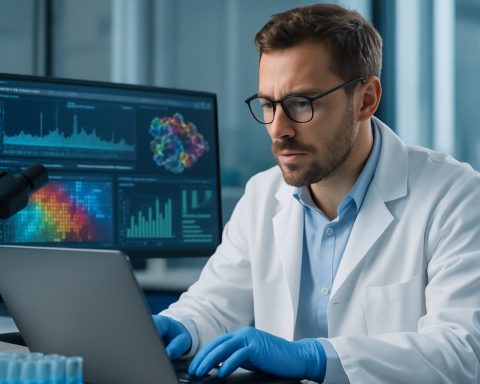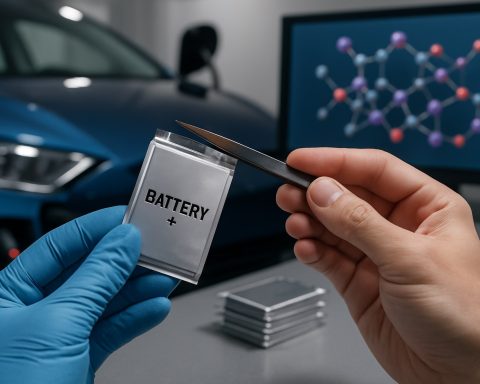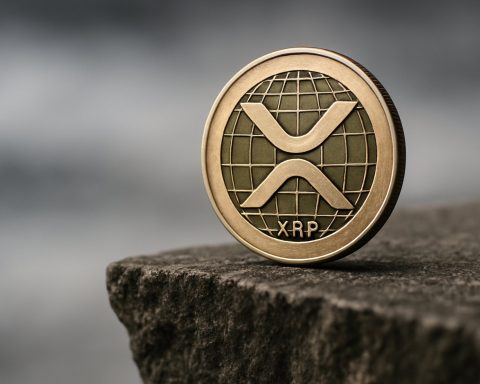- Altilium has pioneered a breakthrough in recyclable EV battery technology at the UK Battery Industrialisation Centre in Coventry, UK.
- Their recycled battery cells recover over 95% of critical metals, such as lithium, from used EV batteries.
- EcoCathode material showcases equivalent performance to traditional batteries, with only a 1% variation in essential metrics.
- This innovation highlights a significant move towards battery circularity and reduced reliance on imported metals.
- Altilium’s collaboration with UKBIC underlines a commitment to sustainability, combining high performance with environmental responsibility.
- The development supports the notion that recycled resources can lead to a cleaner and greener future.
Nestled in the heart of the UK’s bustling tech sector, a groundbreaking triumph in sustainable technology has been unveiled. Altilium, a visionary clean technology group, is leading a revolution that could redefine the electric vehicle (EV) battery industry. Their remarkable experimentations at the UK Battery Industrialisation Centre (UKBIC) in Coventry are tapping into the cutting-edge of eco-friendly resources—proving that the future of energy storage is a recyclable one.
At the UKBIC’s state-of-the-art facility, battery cells crafted from Altilium’s recycled materials emerged as strong contenders against their traditionally manufactured counterparts. The EcoCathode material from Altilium’s proprietary process demonstrated an impressive ability to recover over 95% of critical metals, including those invaluable elements like lithium, from used EV batteries.
Crafting these recycled battery cells was not just a laboratory exercise but a showcase of equivalent performance. Electrochemical tests revealed a mere 1% variation in essential performance metrics between these sustainable cells and those produced from mined metals. This achievement is nothing short of transformative, illustrating a credible pathway towards battery circularity.
The team at Altilium, led by co-founder Dr. Christian Marston, proudly declares this as not only a breakthrough in green technology but a pivotal step towards less dependence on imported metals. It’s a testament to the efficacy of innovation in tackling some of the world’s pressing resource challenges.
Richard LeCain, UKBIC’s Chief Technology Officer, sees this as the dawn of a new era—where UK’s ingenuity can spearhead a market that values recycled over extracted. The collaboration between Altilium and UKBIC demonstrates a visionary approach to sustainability, where high performance and environmental stewardship go hand in hand.
As the world grapples with climate change, efforts like those of Altilium illuminate a future where clean technology doesn’t just promise sustainability—it delivers it. This innovation stands as a beacon of potential, that in the realm of modern transformation, the material world can indeed be reinvented and rejuvenated in the most responsible ways.
Witnessing this evolution, one can’t help but feel optimistic about the roads yet to be traveled. As recycled substrates become the new standard, the dependency on mining diminishes, paving the way for a cleaner, greener tomorrow.
Revolutionizing Electric Vehicle Batteries: Altilium’s Sustainable Solution
Overview
As the world transitions towards sustainable practices, the electric vehicle (EV) industry faces challenges in sourcing environmentally friendly materials for battery production. A significant breakthrough led by Altilium at the UK Battery Industrialisation Centre (UKBIC) in Coventry showcases the potential of recycled materials in EV batteries. This advancement could significantly reduce dependence on mined metals like lithium and propel the industry towards a sustainable future.
How Altilium’s Innovation Stands Out
1. Recyclability and Efficiency: Altilium has developed a proprietary process to recover over 95% of critical metals from used EV batteries, transforming them into viable components for new battery cells. This process not only promotes recycling but also ensures high performance standards.
2. Performance Parity: Tests on battery cells crafted from Altilium’s recycled materials revealed only a 1% variation in performance metrics compared to traditionally manufactured batteries. This performance parity is crucial for the mass adoption of sustainable batteries.
3. Reducing Dependence on Imported Metals: With successful recycling methods, the UK could lessen its reliance on imported metals, fostering self-sufficiency and economic growth in the clean technology sector.
Real-World Use Cases
– Automotive Industry: Car manufacturers can integrate these recycled battery cells to ensure their EVs are not only efficient but also environmentally responsible.
– Renewable Energy Storage: The growing use of renewable energy sources requires efficient storage solutions; Altilium’s batteries could offer a sustainable option for solar and wind energy storage systems.
Market Forecast & Trends
The global lithium-ion battery recycling market is projected to grow significantly in the coming years. As embrace of circular economy principles strengthens, recycled EV batteries could dominate the market, driving innovation and sustainability.
Pros & Cons Overview
Pros:
– Environmental Impact: Significantly reduces mining activities and CO2 emissions associated with traditional battery production.
– Economic Advantage: Potentially lowers production costs as recycling infrastructure expands.
– Resource Efficiency: Maximizes the use of existing materials, diminishing the need for new resource extraction.
Cons:
– Initial Investment: High initial costs for setting up recycling facilities and technology.
– Technological Limitations: Current recycling processes are complex and need continuous improvement to match growing demand.
Insights & Predictions
Industry experts predict that within the next decade, recycled battery materials will become the norm, setting new standards for the EV industry and beyond. Continued advancements in recycling technology could lead to even greater efficiencies and cost reductions.
Quick Tips for Adopting Sustainable Practices in Battery Production
1. Invest in Recycling Technology: Companies should explore partnerships and technologies that focus on material recovery and recycling.
2. Educate Consumers: Promote awareness about the benefits of recycled components to foster acceptance.
3. Collaborate Across Industries: Engage with stakeholders from related sectors to formulate comprehensive sustainability strategies.
Conclusion
Altilium’s work at the UKBIC illustrates an exciting development in the field of clean technology, specifically in the realm of EV batteries. The potential to create high-performance batteries from recycled materials promises not just a reduction in environmental impact but also fosters economic growth through sustainable practices. Embracing these innovations marks a significant step forward in addressing some of the world’s most pressing environmental challenges.
For more insights on sustainable technology, visit Altilium.

